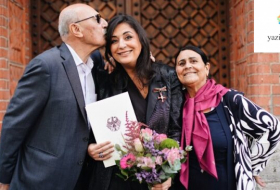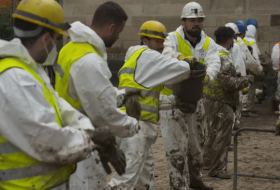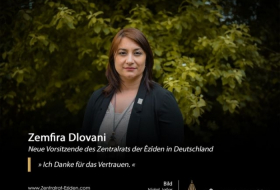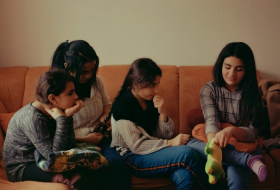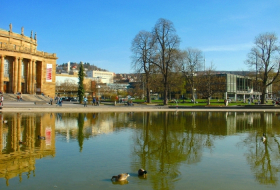Background on the Baden-Württemberg Programme
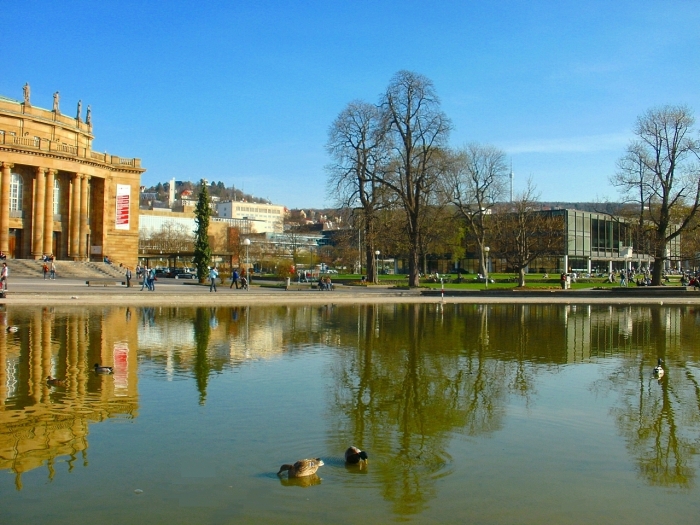
Rescue of survivors: Yazidi women
Author of the article - Thomas McGee
Part 2
The persecution of the Yazidis of Sinjar, which began on 3 August 2014, can be described as "gender-based” in the sense that it targets boys, men, women, and girls in strikingly different ways. While they killed men on the spot when they refused to convert to Islam, boys who had reached puberty were detained and then taught to "commit atrocities" by forcibly conscripting them into IS combat units. Women and girls were held and sold into slavery, as well as subjected to wartime sexual violence, including systematic rape. Representatives of all age and gender groups were subjected to torture. Initial estimates suggest that up to 200,000 Yazidis were displaced because of the Sinjar attack, with the majority eventually settling in Duhok governorate in Kurdistan. At the same time, a survey conducted by the Yazidi Affairs Office revealed that some 6,430 people went missing immediately after the events. Most of them were women and children. While thousands of Yazidis remained missing.
Returning female survivors are often particularly psychologically vulnerable. Some of them witnessed the murder of family members and the torture of their children or were kept underground and deprived of food. Having lost key family members, they often struggle to adapt to the conditions of IDP camps after captivity, where they may be exposed to social stigmatization in their conservative communities as a result of sexual violence and forced marriages by IS members during captivity.
This project represents an important and pragmatic expression of international solidarity with those who have suffered at the hands of the Islamic State extremists, highlighting the refugee policy and social policy pursued by the Kretschmann Green Party (Bündnis 90/Die Grünen). According to the official description of the program, the scheme was “designed to support the efforts of the Yazidis and Iraq to overcome the current difficulties” and can be understood as a burden-sharing initiative, given the inability of the local infrastructure to respond to overwhelming needs. Indeed, in the media coverage of the program, its organizers often emphasize the lack of psychological treatment and services available to survivors of Iraq as a justification for resettling women and children in Germany. In addition, representatives of the programs repeatedly mention that the psychological state of some women was so severe that the transfer from Iraq was considered as a life-saving intervention. The first movement of survivors to Germany took place in March 2015, and by January of the following year, a thousand women and their dependent children had been resettled in 22 municipalities in Baden-Württemberg. In addition, in two federal states (federal states) Niedersachsen (Lower Saxony) and Schleswig-Holstein. According to the chief psychologist of the project, the participants of the program were those who;
1) Was held captive by IS
2) Suffered from psychological and / or medical consequences
3) Were considered able to benefit from specialized treatment in Germany
This program was officially based on a joint declaration "on the intention to improve the psychological lives of victims affected by the atrocities of ISIL" between the State Ministry of Baden-Württemberg and the Kurdistan Regional Government with the logistical support of the International Organization for Migration (IOM). The latter's role was to facilitate transportation and psychological support before and during the trip.
The Agency also made special arrangements for each participant to visit the Lalish shrine, the holiest shrine for the Yazidi community, where religious leaders confirmed the women's faith before the trip. Once in Germany, participants were entitled to free psychological and medical care, accommodation, financial support, as well as German language courses and other educational courses. Dr. Michael Blum, an expert in religious studies, was assigned by the Ministry of Baden-Württemberg to lead the implementation of the program. He then appointed two program coordinators from the Yazidi community in Germany: Dr. Mirza Dinai and Dr. Jan Ilhan Kizilhan, both of whom are recognized as playing a key role in the development of the Yazidi diaspora in Germany. Dr. Dinayi is a doctor and Yazidi activist who has lived in Germany since the 1990s. His organization, Air Bridge of Iraq (Luftbrücke Irak), was established in 2007 to provide emergency medical care in Iraq, especially after the deadly bombings that targeted the Yazidi community of Sinjar that year. Along with other NGOs and churches, it participated in the initial identification of potential participants in the Baden-Württemberg program. Dr. Kizilkhan is a recognized practicing psychologist and scientist, a descendant of the Yazidi community in Turkey. Initially working as a consultant for the program, Kizilkhan later served as its chief psychologist and personally interviewed about 1,400 women.
Despite the laudable goals of the Baden-Württemberg venture, critics called it “more of a PR exercise than a [well] thought-out idea”, pointing out that timely practical preparations for the reception of women were not carried out. Indeed, Kizilkhan himself echoes this reality, openly commenting that; “We had few plans or ideas, mostly just a decision to bring 1,000 people to Germany." Considering the self-proclaimed “experimental” nature of the project (with its relatively short development phase to ensure rapid response by participants), this article examines some potentially disturbing assumptions implied in the design, implementation, and discussion of the program.
Tags: #yazidisinfo #newsyazidi #aboutyazidi #yazidigermany
